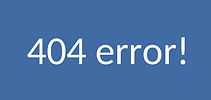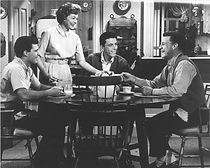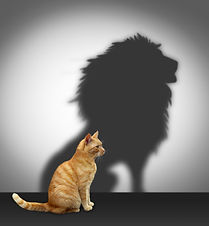








Ask Your Family Doctor…
Feb 11, 2016
...if you’re healthy enough to have sex. Really? Have we slipped so far into not listening to our own body that we have to ask an outside authority for permission to indulge in pleasure? What does it mean that we now feel so compelled to rely on others for personal validation?
Our western culture has become obsessed with experts, specialists, licensed professionals and “board approved” authorities. We pay others dearly for bodily assessments, psychotherapy, emotional coaching, career planning, financial and legal advice, dietary recommendations, performance enhancements, chemically extended sexual prowess, tuition for private instruction in career advancement and a whole host of other capacities that we and previous generations used to perform ourselves. Is it just the time that we feel is needed to “educate” ourselves sufficiently enough to be “qualified” to perform tasks for ourselves? Or is there something else that lies beneath the threshold of our awareness creating fear and apprehension about anything we might choose to do for ourselves that’s not part of a skill or career offered by others and not sanctioned or legalized by some authority or board approval?
One of the factors underlying this obsession is our fear of “making mistakes.” That is, we doubt ourselves so fully that we are not as much vexed by not being able to perform a particular task or function but that we will feel embarrassed when we have to “call someone in” to assess our actions and make “corrections” so we can feel like we’re “back to normal.” But our fear of “making mistakes” goes much deeper than our perceived helplessness and the shame involved in its observation by others. The perceived self-doubt and the feeling of having to consult others comes from an absence of childhood training in assessing ourselves, our situations and our “qualifications” and coming up short in self-assertion and self validation.
Trusting ourselves and our own judgment is a very elusive quality to be able to pinpoint as to the origins of its enabling. For very few of us this confidence may have been innate but for the majority of us it came from building and accumulating experiences in which we performed tasks and received validation from our parents and caretakers for being proficient if not, at the least, competent. The validation comes from our parents and guardians in the form of their allowing and encouraging our personal choices even if they are not in line with what our guardians believe are “the right” choices by conforming to their life experiences. Generally, if a parent has confidence in their own value and proficiency, it will be relatively easy for them to acknowledge and encourage their children’s choices without having to impose and have accepted their own values in order to validate their own self worth.
As second factor, and probably the one which has created the most personal damage to our self-image in our process of gaining and maintaining a feeling of competence and personal validation is the media. There is no doubt that there exists a bank of psychologists and sociologists studying the methods in which the retail and service markets could have the most influential effect on us, the general public, to encourage the purchase of their products and services. It is difficult enough navigating our lives in a confident manner after almost or never having received the encouragement that would have enabled our Self-Trust but the media has taken this handicap one step further. To intensify the effect of this childhood deficiency they have projected an emphasis on us through their assertion that we are not good enough as we are. We need whiter teeth. We need a better education. We need a flashier car, a bigger house, more money, more free time and, most of all, their products and services that will gain the envy and approval of our friends and enemies alike. After receiving little, if not contrary support and discouragement toward building our own self-sufficiency and a self-sustaining life style and compounded by our parents’ inability to allow us to make our own decisions without appeasing their need for our actions to validate and accommodate their approach to life, we’re now hit with advertisements that only bring our learned perceived shame and incompetence directly to the surface of our awareness and potentially for all to see. Now, we’re petrified of exposure. We do all we can to hide our “imperfections.” In the face of the media and its diminished projected standards for us, we begin to believe that we are less than and that others, our parents, caretakers and the media, know better than we about our own lives and personal experiences. After all, if the outside world says it’s true, and they’re only an extension of our parental authority, then it must be true. So why do we believe that we must have others perform the tasks that we used to perform for ourselves? Because we’ve been taught to believe that we are incompetent and need the assistance of others to bring us to a state of being acceptable.
In deference to some of us who are not fully “in the bag” by believing that we are “imperfect” or even incompetent, and there are a few of us who have retrained ourselves and reprogrammed enough of a competent and self-sufficient self-image through long and hard work on ourselves, a third factor encourages us to seek outside assistance. In our very busy and filled up world there are tasks that we neither have the time to fix nor the opportunity to learn how to better manage. Even then we feel we have to “call in the experts.”
So, is it any wonder that most of us have been brainwashed so badly that we have to ask our family doctor if we’re even allowed to seek pleasure for ourselves let alone if we are able or “competent” to do so?Our ability to listen to our own body and our faith in our own judgment has been so thoroughly stamped out under the threat of disapproval, excommunication and the withholding of any support or affection that we now believe that our fate and prosperity rests solely on the approval of those to whom we’ve assigned authority over us and our personal accountability to on the chance that we might make a mistake and expose our imperfections. What’s so ironic is that we all make what we perceive as mistakes. We’re human. It’s inevitable. Then, how is it that we have accepted training that says it is possible not to make mistakes? And what is a mistake anyway but the unmet expectation of those to whom we have assigned authority over us?
There is no one at fault for programming us in this way. Generally, our parents and caretakers did the best they could with what they understood about their own validity as adults. They have also become a victim of poisoned media thinking that perfection is possible, so, now, they naturally expect it of us; their children. And if we’re not perfect like Ozzie and Harriet, Father Knows Best and the TV portrayals of all the other nightly family situational serials from the 50s and 60s (we now call them sitcoms but they we’re deemed funny then) then there must be something inadequate with our parents’ child-rearing abilities; aka, they must feel left to assume that they are incompetent parents. Now, let me ask you. If you feel discouraged about your own competence and validity as a parent, are you going to be able to encourage your children to be independent and competent, especially, if you no longer know how that feels? Of course not. You’re going to instill the same fear of imperfection and making “mistakes” in them. And so it goes on and on. And now we hear an echo from the bible, and probably many other scriptures, saying, “The sins of the father (and mother) become the sins of their sons (and daughters).”
There are many ways to regain our personal power and Self-Trust. There’s not enough space to go into them all in a small article let alone the time. But in our first steps toward redeeming them it’s extremely important to recognize and understand why and how we have given away our power and Self-Trust in order that we may remain in a feeling that we belong, to feel that we are acceptable, even with all our abhorrent imperfections and that if we follow all the rules and do what we’re told, we won’t be called out, exposed, withheld from, excommunicated or deserted. What a terrible price to pay for the illusion of being loved and the elusive security of belonging. The courage we can show in trusting ourselves and risking the exposure and possible disapproval of our personal expression and individuality while allowing others to have the choice to reject them are some of our most important components of loving ourselves and the world…as it is.
